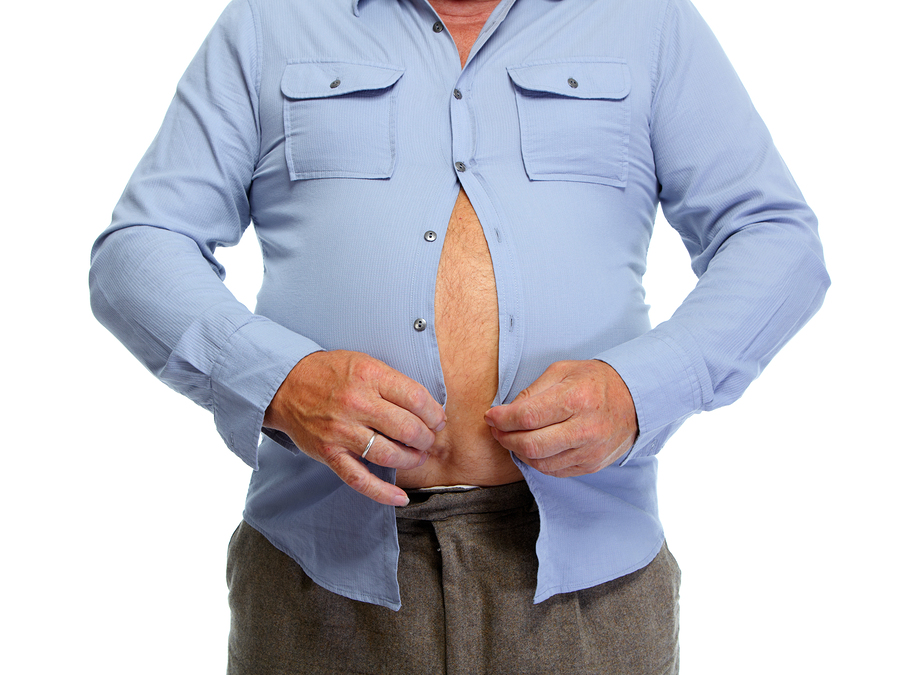- Make It Yourself Lavender Heart-Shaped Bath Bombs!
- 20 Things You Never Knew About “Down There”
- 12 Best Foods For Those Suffering From Arthritis Pain
- 12 Personal Hygiene Mistakes Almost Everyone Makes (Mom Never Told You About #4!)
- 15 Medicinal Plants And Herbs From The Cherokee People
- 12 Mind-Blowing Benefits Of Drinking Coconut Water During Pregnancy
- 12 Outstanding Winter Foods That Won’t Fatten You Up Like A Christmas Turkey
Diet Versus Exercise: Which Is More Effective For Losing Weight?

Photo credit: bigstock.com
Have you ever known someone who absolutely killed themselves in the gym, but never seemed to lose any weight? Have you been that person yourself?
It’s more common than you might think, and when it happens, it can be very frustrating and demoralizing for people who are trying to lose weight. Some people who experience this problem may conclude that exercise is pointless and they’re just genetically doomed to be fat.
Fortunately, this is not the case. New research shows that exercise on its own is often not enough to lose weight. It turns out that hitting the gym is much more effective when it’s complemented by a healthy diet. In fact, changing what you eat may be far more effective than the treadmill when it comes to shedding unwanted pounds.
The Research
It’s long been conventional wisdom for doctors and nutritionists alike that a sedentary lifestyle—that is, not getting enough exercise—is the primary cause of obesity.
While there’s some truth to this, more recent scientific findings indicate that obesity has a whole lot more to do with what we put into our bodies than what we do (or don’t do) with them.
A study conducted by researchers at Loyola University of Chicago’s Stritch School of Medicine was performed to determine what the relationship was between levels of physical activity and weight gain.
Participants in the study included over 1,900 adults living in the United States, Jamaica, the Seychelles, Ghana and South Africa. At the start of the two-year study, the participants were asked to wear a special tracking device on their bodies for one week. This device monitored the amount of time they spent exercising. The purpose of doing this was to determine if these adults met the US Surgeon General’s physical activity recommendations, which call for a minimum of two and a half hours of moderate exercise per week.
The height, weight and body fat percentage of each participant was measured and recorded at the beginning of the study. Follow-up measurements were taken one year later, and a third time one year after that.
The purpose of all this was to determine whether or not the individuals who met the surgeon general’s guidelines for exercise experienced a greater amount of weight loss versus the ones who didn’t. The results were quite surprising.
It turned out that contrary to what most people would expect, the people who met the exercise guidelines were more likely to gain weight naturally than the ones who didn’t. What’s going on here?
It turns out that diet plays a bigger role in cutting unwanted pounds than exercise. If an obese person is hitting the gym, but still eating tons of surgery snacks and fast food, that person will have a harder time losing weight than an obese person who doesn’t exercise, but instead adopts a diet that cuts out those unhealthy items.
This isn’t to say that exercise is a waste of time—not at all! Even if isn’t as effective for weight loss as eating clean, exercise still helps build muscle mass and strength, improves cardiovascular health, lowers blood pressure (cardio exercise specifically) and improves physical endurance. The endorphin rush that comes from a good workout can also fend off depression and help people feel more optimistic, happy and confident.
Continue to Page 2
































